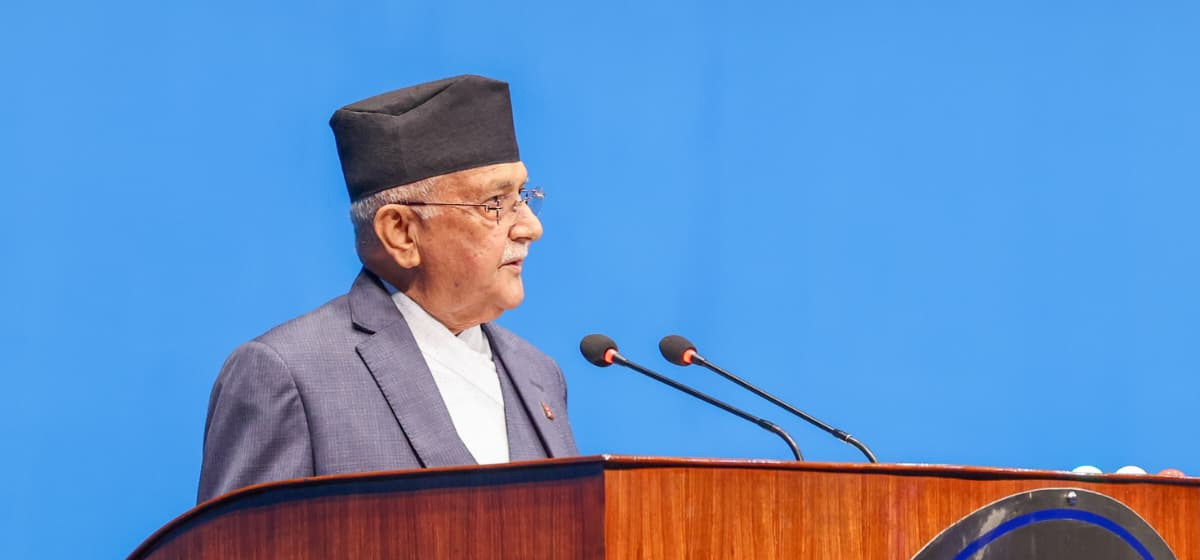KATHMANDU, Aug 5: The issue of amending the polygamy-related law in a way that could harm women has sparked debate from Parliament to the streets. As discussions intensified, Minister for Home Affairs (MoHA) Ramesh Lekhak called a meeting of the Legislation Management Committee for Tuesday morning. Minister Lekhak informed the Republica that if the amendment to the law is found to be ambiguous, it will be revised again.
The controversy erupted over a proposed amendment by the Ministry of Law, Justice, and Parliamentary Affairs (MoLJPA) that would recognize a second marriage if a married man engages in a relationship with another woman, resulting in pregnancy or childbirth.
Although MoLJPA Ajay Chaurasiya has claimed that such an amendment is not possible, the protests have not subsided. Widespread opposition emerged after news broke that the legal draft appeared to permit men to practice polygamy. During Monday’s meeting of the House of Representatives, several female lawmakers raised objections. Most of the women who spoke criticized the MoLJPA, claiming that the ministry had prepared such a draft.
Provincial assembly member Sah to face suspension for polygamy

The provision under Section 175 of the National Penal (Code) Act, 2017, which prohibits polygamy, remains in the draft prepared by the MoLJPA. Although that provision remains unchanged, it has still sparked protests in Parliament. The draft proposes revising the existing provision, which states that “a married man cannot remarry,” to make it gender-neutral by stating that both married men and married women are prohibited from marrying another person.
The draft mentions the removal of Sub-section (2) of the original Section 175, which states, “No woman shall knowingly marry a man who is already married.” Sub-section (1) clearly states that polygamy is not allowed.
Sub-section (4) further states, “A person who commits polygamy shall be imprisoned for a term of one to five years.” On the other hand, the draft introduces a clause that reads, “Notwithstanding anything mentioned in Sub-section (5), if a child has already been born from the marital relationship or the woman is pregnant, the marriage shall not be voided solely on the grounds of punishment under the offense of polygamy.”
This indicates that men are not allowed to practice polygamy. Sunita Baral, whip of the ruling CPN-UML, stated that the government’s role and the legal draft concerning polygamy have come under question. She emphasized that polygamy is unacceptable both socially and legally. “Every individual and group in society is concerned when an antisocial and illegal act is being legitimized. The government must provide a clear explanation regarding how such a sensitive draft is being prepared,” she said in Parliament.
Lawmakers from the CPN (Maoist Center), including Rupa Chaudhary, Durga Rai, Narayani Sharma, and Ranendra Baraili, also voiced their opposition during the parliamentary session. Members of the Nepali Congress expressed their views as well.
The issue has sparked widespread debate and discussion on social media, where the government has faced heavy criticism. On the streets, some women have begun hunger strikes. Binu Yadav, who has long been fighting legal battles against violence arising from marital relationships, launched an indefinite hunger strike at Maitighar Mandala on Friday. She is demanding the withdrawal of the proposed provisions in the draft amendment to the National Penal (Code) Act, 2017, which is reportedly aimed at giving legal recognition to polygamy.
Yadav stated that she was compelled to begin a hunger strike because granting legal recognition to polygamy would create a situation where women seeking justice through the courts would be unable to survive. Women’s rights activists have also taken this issue seriously. They argue that the draft prepared by the MoLJPA to amend Section 175 of the National Penal (Code) Act, 2017, harms women by stating that if a woman becomes pregnant or gives birth, a second relationship can be recognized as marriage, even if the man is already married.
Activists claim that this provision undermines women's rights and contradicts the National Penal (Code) Act, 2017, and the National Civil (Code) Act, 2017, which categorically prohibit polygamy. The attempt to introduce a bill that effectively grants an exemption to polygamy has drawn widespread opposition—not only from rights activists but also from lawmakers of both the ruling and opposition parties, who have stood together in protest.





































